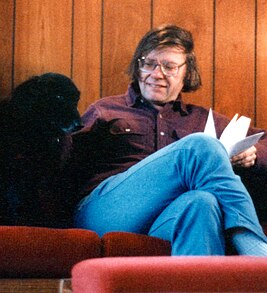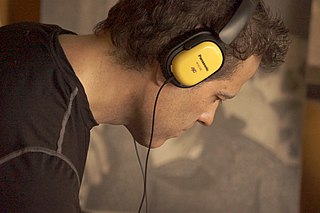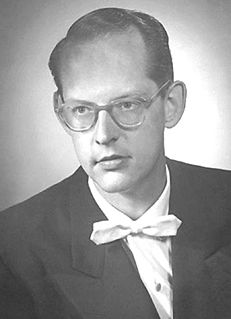 W
WMilton Byron Babbitt was an American composer, music theorist, mathematician, and teacher. He is particularly noted for his serial and electronic music.
 W
WMarion Eugénie Bauer was an American composer, teacher, writer, and music critic. She played an active role in shaping American musical identity in the early half of the twentieth century.
 W
WBenjamin Aaron Boretz is an American composer and music theorist.
 W
WIan Brennan is an American music producer, author and lecturer on violence prevention.
 W
WCardon Vern Burnham Jr. was an American composer, arranger, conductor, and performer of musical genre. His work included classical, choral, jazz, orchestral, operatic, and chamber music, most notably the opera entitled "Nitecap" which he composed in 1955.
 W
WPatricia Carpenter (1923–2000), a music theorist, was a professor of music theory at Barnard College and Columbia University. Her areas of scholarly interest included music theory, the history of music theory, musical analysis, and the aesthetics of music.
 W
WHenry Dixon Cowell was an American composer, music theorist, pianist, teacher, publisher, impresario and the husband of Sidney Robertson Cowell.
 W
WPaul Erlich is a guitarist and music theorist living near Boston, Massachusetts. He is known for his seminal role in developing the theory of regular temperaments, including being the first to define pajara temperament and its decatonic scales in 22-ET. He holds a Bachelor of Science degree in physics from Yale University.
 W
WAllen Forte was an American music theorist and musicologist. He was Battell Professor Emeritus of the Theory of Music at Yale University and specialized in 20th-century atonal music and music analysis.
 W
WHoward Harold Hanson was an American composer, conductor, educator, music theorist, and champion of American classical music. As director for 40 years of the Eastman School of Music, he built a high-quality school and provided opportunities for commissioning and performing American music. In 1944, he won a Pulitzer Prize for his Symphony No. 4, and received numerous other awards including the George Foster Peabody Award for Outstanding Entertainment in Music in 1946.
 W
WHarry Partch was an American composer, music theorist, and creator of musical instruments. He composed using scales of unequal intervals in just intonation, and was one of the first 20th-century composers in the West to work systematically with microtonal scales. He built custom-made instruments in these tunings on which to play his compositions, and described his theory and practice in his book Genesis of a Music (1947).
 W
WGeorge Perle was a composer and music theorist.
 W
WJames K. Randall was an American composer, music theorist, and early adopter of electronic music. At the time of his death he was Professor of Music Emeritus at Princeton University.
 W
WAnton Rovner is a Russian-American composer, music critic and theorist.
 W
WGeorge Allen Russell was an American jazz pianist, composer, arranger and theorist. He is considered one of the first jazz musicians to contribute to general music theory with a theory of harmony based on jazz rather than European music, in his book Lydian Chromatic Concept of Tonal Organization (1953).
 W
WJoseph Moiseyevich Schillinger was a composer, music theorist, and composition teacher who originated the Schillinger System of Musical Composition. He was born in Kharkiv, in the Kharkov Governorate of the Russian Empire and died in New York City.
 W
WArnold Schoenberg or Schönberg was an Austrian-born composer, music theorist, teacher, writer, and painter. He is widely considered one of the most influential composers of the 20th century. He was associated with the expressionist movement in German poetry and art, and leader of the Second Viennese School. As a Jewish composer, Schoenberg was targeted by the Nazi Party, which labeled his works as degenerate music and forbade them from being published. He emigrated to the United States in 1933, becoming an American citizen in 1941.
 W
WRoger Huntington Sessions was an American composer, teacher and writer on music.
 W
WJames Tenney was an American composer and music theorist. He made significant early musical contributions to plunderphonics, sound synthesis, algorithmic composition, process music, spectral music, microtonal music, and tuning systems including extended just intonation. His theoretical writings variously concern musical form, texture, timbre, consonance and dissonance, and harmonic perception.
 W
WChristopher Tignor is an American composer, musician, software engineer, and lecturer based in New York City. In addition to releasing music under his own name, he is a founding member of post-rock acts Slow Six and Wires Under Tension. Primarily a violinist, he has also composed and recorded string arrangements for notable acts including This Will Destroy You, John Congleton, Keith Kenniff, and Lymbyc Systym.
 W
WErvin Wilson was a Mexican/American music theorist.
 W
WBernhard Ziehn was a German-American music theorist and music teacher.